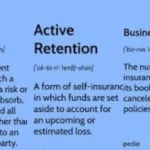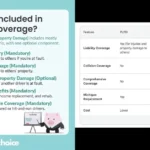Einwandbehandlung, or objection handling, is a critical skill for anyone involved in sales. Whether you’re in direct sales, e-commerce, customer support, or B2B negotiations, mastering the art of addressing objections can significantly improve your success rate. Buyers often hesitate, question, or raise concerns before committing. This is where effective einwandbehandlung becomes your most powerful tool — building trust, removing doubt, and steering the conversation toward a successful close.
What Is Einwandbehandlung?
Einwandbehandlung refers to the process of professionally addressing and resolving customer objections. These objections might involve price, timing, trust, or product relevance. The goal is not to manipulate or pressure the customer, but to understand their perspective and respond with empathy, facts, and persuasive communication.
Why Is Einwandbehandlung So Important?
Sales professionals who excel at object handling can convert hesitations into confidence. According to industry studies, nearly 60% of lost sales opportunities can be salvaged with effective objection handling. When prospects feel heard and their concerns validated, they are far more likely to make a buying decision.
Common Objections and How to Identify Them
Understanding the types of objections is the first step toward overcoming them. Here are the most common categories:
Price Objections
Example:
“This is too expensive.”
How to handle:
Emphasize value over price by showing return on investment or long-term benefits.
Time-Based Objections
Example:
“Now’s not a good time.”
How to handle:
Show how the product or service can save time or fits seamlessly into their schedule.
Decision-Making Objections
Example:
“I need to check with my partner.”
How to handle:
Ask what their partner’s concerns might be and address those proactively.
Trust or Skepticism
Example:
“I’ve never heard of your brand.”
How to handle:
Share testimonials, success stories, or industry certifications to build credibility.
Best Techniques for Effective Einwandbehandlung
Empathetic Mirroring
Repeat the objection in your own words to show understanding.
“I understand that the price seems high. May I explain why many customers find it valuable?”
Strategic Questioning
Ask open-ended questions to uncover the root cause of the objection.
“What specifically are you concerned about?”
Agreement with Redirection
Acknowledge the concern, then pivot to the benefits.
“You’re right, it’s an investment — but one that quickly pays off with the savings it generates.”
Storytelling
Share relatable case studies to increase emotional connection and credibility.
“One client in a similar industry had the same concern, and within three months, they saw a 25% increase in efficiency.”
Comparison Table: Top Einwandbehandlung Techniques
| Technique | Effectiveness | Cost | Ease of Use | Emotional Impact | Trust Building |
| Empathetic Mirroring | High | Low | Excellent | Very High | High |
| Strategic Questioning | Medium | None | Good | Medium | Medium |
| Agreement & Redirection | High | None | Excellent | High | High |
| Storytelling | High | Low | Medium | Very High | Very High |
| Data-Driven Argumentation | Medium | Medium | Medium | Low | High |
Mistakes to Avoid in Einwandbehandlung
Ignoring the Objection
Pretending an objection doesn’t exist will lead to mistrust. Customers will sense deflection.
Being Argumentative
Turning the conversation into a debate creates friction. Always stay calm and constructive.
Poor Preparation
Lack of knowledge about your product, competitors, or common objections is a serious handicap. Be ready with answers and data.
Practical Steps to Handle Objections Like a Pro
- Listen Actively: Truly hear what the customer is saying — and not saying.
- Acknowledge and Validate: Show empathy and confirm that their concern is reasonable.
- Ask Questions: Dig deeper to understand the motivation behind the objection.
- Provide Relevant Solutions: Offer specific examples, facts, or benefits that resolve the concern.
- Confirm Resolution: Ask if your answer addresses their concern. If not, refine your approach.
The Role of Body Language and Voice in Objection Handling
Non-verbal communication is crucial when handling objections. Your posture, eye contact, and tone of voice can either reinforce or undermine your words.
Pro Tip:
Maintain open body language, use a calm voice, and avoid crossing arms. These signals create an atmosphere of trust.
Einwandbehandlung in the Digital Age
As more customer interactions move online, objection handling must also evolve. Sales professionals today often face objections through:
- Live chat
- Social media
- Video calls
Clear, concise writing and quick response times are key. Supporting content like FAQs, case studies, and explainer videos can also assist in resolving doubts digitally.
Cultural Differences in Objection Handling
Cultural norms can shape how objections are expressed. For example:
- In Germany or the U.S., customers may directly state concerns.
- In Japan or some Arab cultures, objections may be indirect or non-verbal.
Sales reps must adapt their approach to ensure they are reading cues accurately and not missing hidden objections.
How CRM and AI Tools Improve Einwandbehandlung
Modern customer relationship management (CRM) systems help sales teams:
- Track recurring objections
- Store response templates
- Analyze customer data
- Deliver AI-generated suggestions in real-time
“AI tools are transforming objection handling by providing real-time insights and automated responses, reducing lost sales opportunities.” — Sales Strategist Laura Bender
Mastering Objection Handling for Long-Term Sales Success
Einwandbehandlung is not just a tactic — it’s a mindset. It means viewing every objection as a stepping stone rather than a barrier. Customers rarely object without reason, and by taking time to understand and respectfully counter those reasons, you build credibility and close more deals.
Training your sales team in object handling techniques is an investment in long-term success. With the right mindset, tools, and preparation, your team can turn objections into opportunities — and skepticism into satisfaction.
Conclusion
Einwandbehandlung, or objection handling, is a crucial sales skill that involves addressing customer concerns such as price, timing, trust, or decision-making doubts. Instead of pushing back, successful salespeople listen actively, respond empathetically, and offer clear value to overcome resistance. Techniques like mirroring, questioning, storytelling, and redirection help transform objections into opportunities for trust and connection, especially when tailored to the customer’s needs.
In today’s digital sales environment, objection handling has expanded beyond face-to-face conversations to include emails, chats, and video calls. Tools like CRM systems and AI enhance this process by tracking patterns and suggesting effective responses. Ultimately, mastering object handling helps sales professionals build credibility, close more deals, and create long-term customer relationships.
FAQs
What is einwandbehandlung in sales?
Einwandbehandlung refers to the process of addressing customer objections effectively to move them toward a buying decision.
What are the most common types of objections?
Common objections include concerns about price, timing, trust, or needing approval from others.
How can I deal with price objections?
Focus on the value and long-term benefits of your product or service rather than the upfront cost.
Is it important to address objections immediately?
Yes, unresolved objections can block the sale. Address them as soon as they arise to maintain momentum.
Can objection handling be done online?
Absolutely. With the rise of digital communication, objection handling via email, chat, and social media is more critical than ever.
How does AI help with object handling?
AI tools analyze patterns and suggest proven responses, helping sales teams address objections faster and more effectively.











